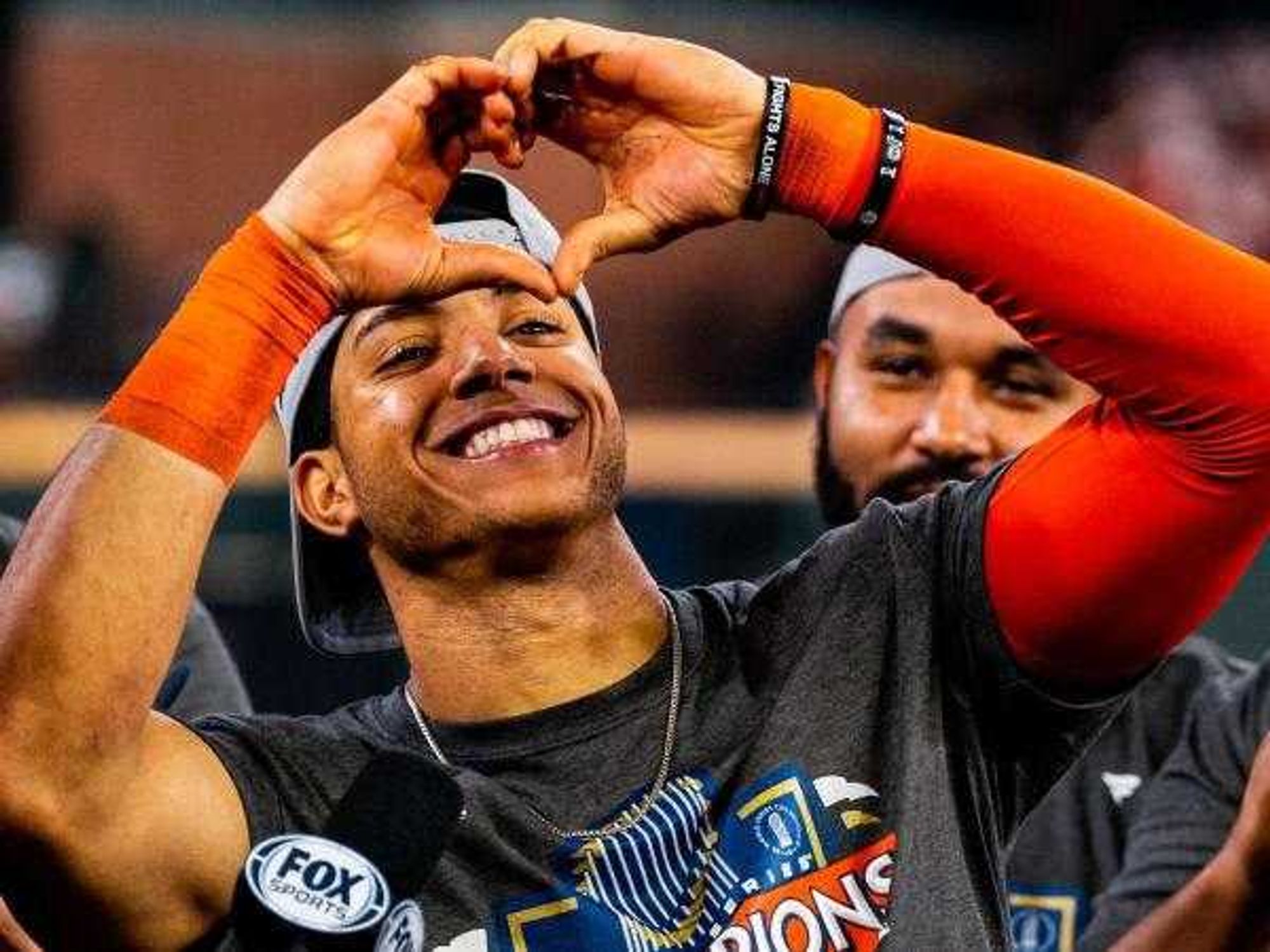Down and Distance
Why the Green Bay Packers & presidential politicians should be nervous: It's ayear for insurgents
If you needed proof that politicians look to the NFL to inform the narratives they use to build their their campaigns, one only needed to watch Rick Perry invoke the hallowed name of Tim Tebow in the final Republican debate before delegates actually started getting assigned for exhibit A.
"I hope I am the Tim Tebow of the Iowa caucuses," the Governor opined, and he wasn't talking to a crowd in Denver, or even Florida.
Fact is, football and politics have been entwined since Teddy Roosevelt first mandated that the game's rulemakers create the forward pass, a move he insisted upon because 18 brave young men had died on the field in the 1906 season. There's always been a link between our most beloved game and our political institutions.
There's always been a link between our most beloved game and our political institutions.
It goes beyond Jack Kemp and Lynn Swann. It goes beyond John McCain pandering to Wisconsin and Pennsylvania audiences by insisting that during his tenure as a POW, he recited the names of the Packers or Steelers offensive linemen when interrogated about the names of the other men in his unit. Which team he cited depended on where he was giving the speech. It goes beyond the infamous car ride in which Hunter S. Thompson and Richard Nixon spent an hour together during the 1968 campaign with the caveat that they discuss only the goings-on in the NFL.
The narratives that we pull from the NFL are the most indicative of where we are as a culture at any given time, because they are spontaneous. They're not movies, dictated by either an auteur’s vision or a studio's relentless focus-grouping; they're not reality television where authenticity never enters the equation. These are stories with no inherent meaning besides some geographic loyalties, and they capture the attention of the American people like none other.
It would be wrong to claim that there was a causal relationship between the two — people will not caucus for Rick Perry because he crassly attempted to claim the mantle of Tebow — but it would be equally foolish to dismiss the significance of the NFL narratives when it comes time to consider politics.
And that is why the story of the 2011 Green Bay Packers should have any front runner going into the 2012 political season a little bit nervous.
But the Packers are the best team in the league… !
Until the Packers’ shocking loss to the deeply unlikely one-two punch of interim head coach Romeo Crennel’s adroit gameplan and recent waiver-wire quarterback Kyle Orton’s smooth game management in Kansas City, the narrative around Green Bay’s season was something like this: “Yep, they’re really good.”
It was weird, given how much America tends to love a winner. The last few times we had teams reach 13-0 — in 2007 with the New England Patriots, and in 2009 with the Indianapolis Colts and the New Orleans Saints — these were the dominant stoylines of the league.
Could they do it? Did we even want them to? The ’07 Patriots divided America with their grim, unsmiling coach, their underwear model of a perfect quarterback, and their predilection for running up the score on hapless opponents. The ’09 Saints played to redeem their city, while that year’s Colts team was thrilling because nice-guy quarterback Peyton Manning suggested that a quarterback already on the very short list for The Best Ever could be getting even better.
We love to talk about a winner, but we haven’t been talking much about the 2011 Packers.
We love to talk about a winner, but we haven’t been talking much about the 2011 Packers. This year, the narratives have centered around the triumphs of Tebow; the schadenfreude-fueled failings of the Philadelphia “Dream Team”; the utter collapse of the Manning-less Colts; the rise, fall, and rebirth of the Detroit Lions; the development of the NFL’s Little Brother Eli Manning into an all-growed-up quarterback; the Ravens’ casting the Steelers-sized monkey off of their back; and the leadership of 49ers coach Jim Harbaugh in taking a perpetual loser to an easy division championship in his first year without so much as an off-season.
We’ve clapped politely for the winning record of the Packers, but drama-free success does not seem to be something that Americans are particularly interested in right now.
This is a good year for insurgents
Time magazine has declared “The Protester” the Person Of The Year, and in football, as in life, it seems like that’s what we want.
You can find much more excitement over the prospect of one of the season’s losers sneaking into the playoffs to make noise — sports radio and blogs are thrilled at the notion that the Eagles aren’t yet mathematically eliminated from playoff contention (and the NFC East — a division full of half-baked teams that only have a frontrunner because someone has to be leading – sure seems like a better parallel for the Republican primary candidates than anything to do with Tim Tebow); that Crennel’s Chiefs could, with a lot of luck, sneak in; that San Diego, fresh off of embarrassing the mighty Ravens defense on primetime television, are rolling; and of course that the Denver Broncos have seen the fortunes reverse over the course of the past three months.
We’re sick of unquestioned winners in America right now. You can see it everywhere — from Occupy Wall Street to the narratives of the NFL to the trailer for The Dark Knight Rises (which also gives Steelers wide receiver Hines Ward about three times as much screen time as it does Batman). If you were, say, a mildly popular Republican candidate for President hoping to build momentum for an easy path to the nomination, that might make you a little bit nervous.
